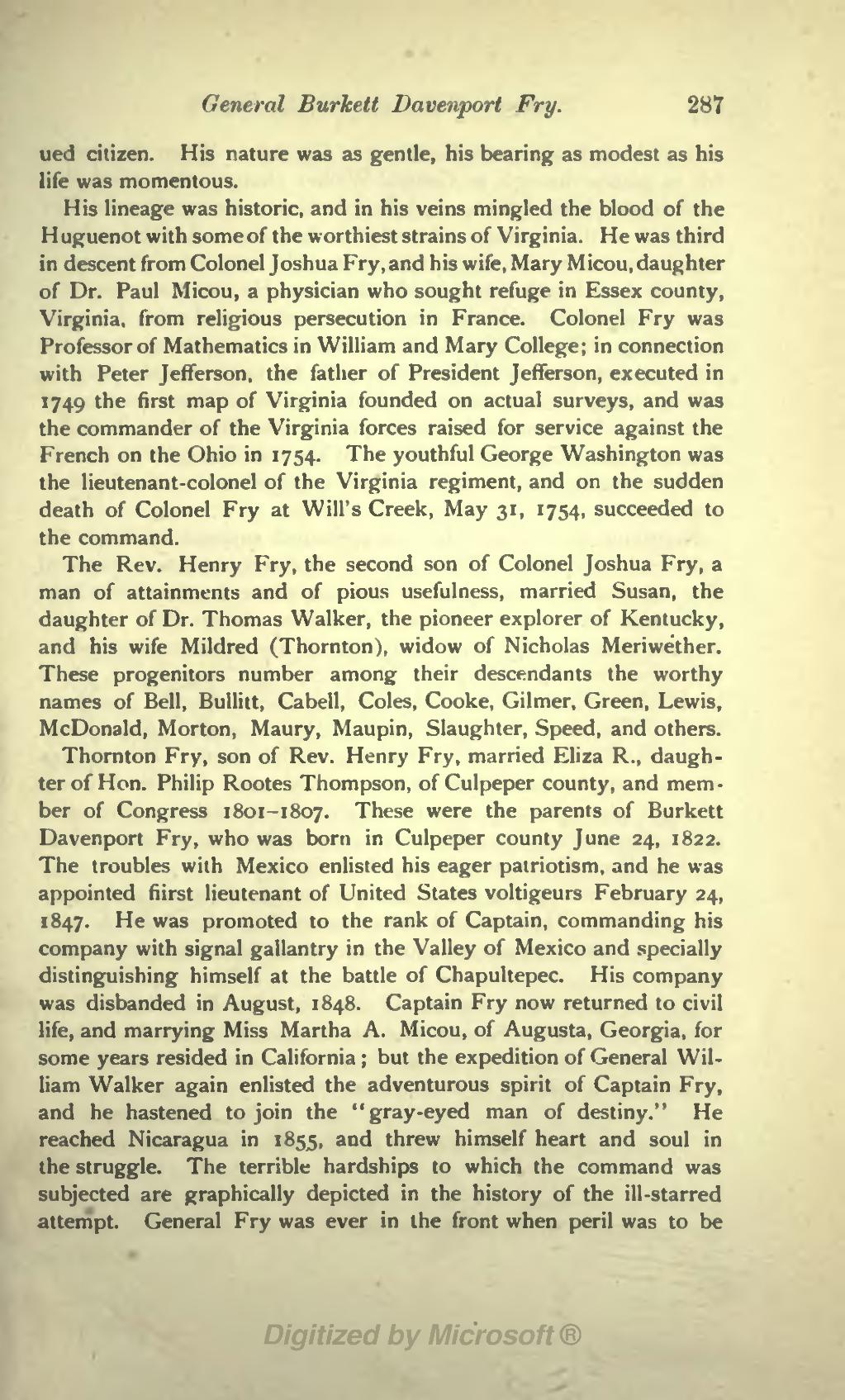ued citizen. His nature was as gentle, his bearing as modest as his life was momentous.
His lineage was historic, and in his veins mingled the blood of the Huguenot with some of the worthiest strains of Virginia. He was third in descent from Colonel Joshua Fry, and his wife, Mary Micou, daughter of Dr. Paul Micou, a physician who sought refuge in Essex county, Virginia, from religious persecution in France. Colonel Fry was Professor of Mathematics in William and Mary College; in connection with Peter Jefferson, the father of President Jefferson, executed in 1749 the first map of Virginia founded on actual surveys, and was the commander of the Virginia forces raised for service against the French on the Ohio in 1754. The youthful George Washington was the lieutenant-colonel of the Virginia regiment, and on the sudden death of Colonel Fry at Will's Creek, May 31, 1754, succeeded to the command.
The Rev. Henry Fry, the second son of Colonel Joshua Fry, a man of attainments and of pious usefulness, married Susan, the daughter of Dr. Thomas Walker, the pioneer explorer of Kentucky, and his wife Mildred (Thornton), widow of Nicholas Meriwether. These progenitors number among their descendants the worthy names of Bell, Bullitt, Cabell, Coles, Cooke, Gilmer, Green, Lewis, McDonald, Morton, Maury, Maupin, Slaughter, Speed, and others.
Thornton Fry, son of Rev. Henry Fry, married Eliza R., daughter of Hon. Philip Rootes Thompson, of Culpeper county, and member of Congress 1801-1807. These were the parents of Burkett Davenport Fry, who was born in Culpeper county June 24, 1822. The troubles with Mexico enlisted his eager patriotism, and he was appointed first lieutenant of United States voltigeurs February 24, 1847. He was promoted to the rank of Captain, commanding his company with signal gallantry in the Valley of Mexico and specially distinguishing himself at the battle of Chapultepec. His company was disbanded in August, 1848. Captain Fry now returned to civil life, and marrying Miss Martha A. Micou, of Augusta, Georgia, for some years resided in California; but the expedition of General William Walker again enlisted the adventurous spirit of Captain Fry, and he hastened to join the "gray-eyed man of destiny." He reached Nicaragua in 1855, and threw himself heart and soul in the struggle. The terrible hardships to which the command was subjected are graphically depicted in the history of the ill-starred attempt. General Fry was ever in the front when peril was to be
